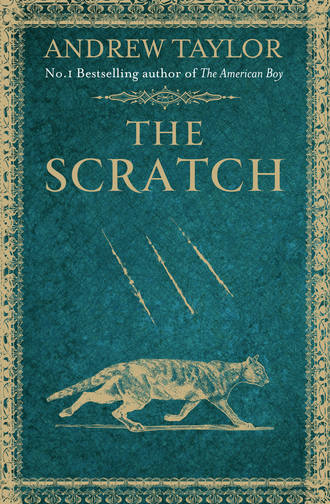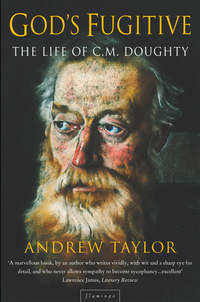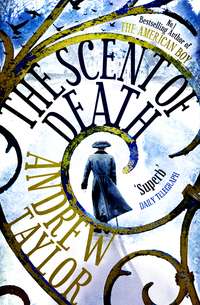
Полная версия
The Scratch
‘How did you do that?’
‘I don’t know.’ He turned away and patted the pockets of the coat, which he had emptied not five minutes before. ‘It’s nothing. Probably a nail or something.’
‘Have you cleaned it?’
‘Yes. It’s OK. I’ve had my jabs.’
It wasn’t the words, it was something in his voice. Don’t fuss. He was warning me off.
I turned aside and ran a duster over the windowsill, a pointless exercise in a room where the dirt was everywhere. Jack was right to shut me up. I’d been treating him as if he was a child, as if he were Tom or Annie, and I had a right to tell him what to do. But he wasn’t, and I didn’t.
So in a moment I asked him if he wanted a radio to keep him company. He said no thank you. He had rolled down his shirtsleeves by now and was in the process of putting on his jersey.
It seems so trivial, described baldly like that. But it wasn’t. Two things happened that afternoon which were both important, though I didn’t realize their significance until later.
First, there was the scratch and Jack’s reaction when I asked him about it. The other thing was that I’d learned that Jack wasn’t like the children or even Gerald.
He was Jack. He was different from everyone else.
3
Ten days passed.
It was astonishing how quickly our semi-detached lives became a routine. Gerald went off to work five days a week. I spent my time in the studio with Cannop and the radio for company. Occasionally I would come out to cook or to do a burst of housework. I went shopping. I saw friends. I talked to the children on the phone.
Meanwhile, Jack spent most of his days outside. It was a mild March that year with some wonderfully sunny days which seem to have been misplaced from May. He worked in the garden – first mowing the lawn, and then pruning the fruit trees and the climbing plants and the shrubs. When that was done, he attacked the brambles that had sprouted over the years into a small, vicious thicket in the corner by the Hovel. The soil was difficult to work – it was full of stones and scraps of smelted iron. It took him days to dig out the roots.
Every day, rain or shine, he went for a run in the Forest, and often a walk as well. We saw him, usually, at mealtimes, and sometimes he sat with us in the evenings and watched television.
We had the news on one evening and there was an item about Afghanistan. After half a minute, he stood up abruptly, said goodnight and left the room.
Gerald raised his eyebrows. Most of the time he gave the impression that he noticed very little about other people, but he could be surprisingly perceptive when he wanted to be. We heard the back door slam. Cannop sidled into the room and leapt on to my lap.
‘Something hasn’t healed,’ Gerald said. Then his eyes went back to the television.
The following afternoon, I took Jack a cup of tea. He was digging what had been a vegetable patch, though Gerald and I had long since lost interest in it. It was a nice afternoon and I carried my own mug outside as well. We sat in the sun on the bench under the apple tree.
Cannop had followed me out of the studio. He sat at a safe distance from us underneath the wheelbarrow. He stared at us.
Jack stared back. He seemed not to mind the cat when they were outside, not unless Cannop came too close, in which case Jack would stamp his foot or hiss or even – I’d seen this once from an upstairs window – throw a lump of earth at him. ‘It’s an odd name,’ Jack said. ‘Where does it come from?’
‘Cannop? It’s where we found him. It’s a valley in the Forest.’
‘He came from the Forest? So he’s wild?’
‘Probably not, though you never know. He was tiny – two or three weeks old, the vet reckoned. When Annie saw him, he was in the middle of a path making tiny mewing sounds. It was love at first sight. On Annie’s side, at least.’
Cannop got up, turned his back on us and sat down again. I tried not to anthropomorphize cats but I was sure that he knew we were talking about him, and he didn’t like it.
‘We fed him with a bottle in the first few weeks. We didn’t think he’d survive. But he did.’
‘So if he wasn’t wild, how did he get in the Forest?’
‘I don’t know. Maybe his mother was a runaway. Or maybe he was picked up by a bird or some sort of animal – then dropped. It happens.’
‘I bet he was wild,’ Jack said. ‘Isn’t that more likely?’
‘Maybe. Cannop’s always been a bit stand-offish, like farm cats are.’
Конец ознакомительного фрагмента.
Текст предоставлен ООО «ЛитРес».
Прочитайте эту книгу целиком, купив полную легальную версию на ЛитРес.
Безопасно оплатить книгу можно банковской картой Visa, MasterCard, Maestro, со счета мобильного телефона, с платежного терминала, в салоне МТС или Связной, через PayPal, WebMoney, Яндекс.Деньги, QIWI Кошелек, бонусными картами или другим удобным Вам способом.








